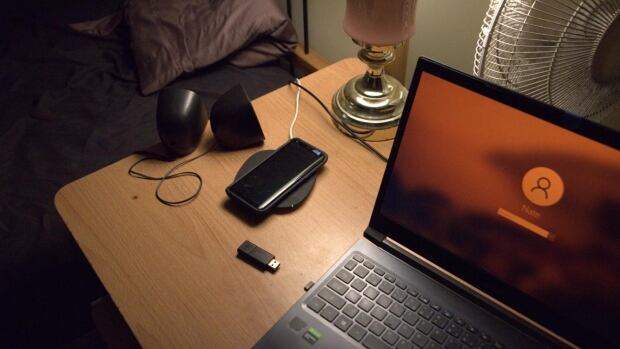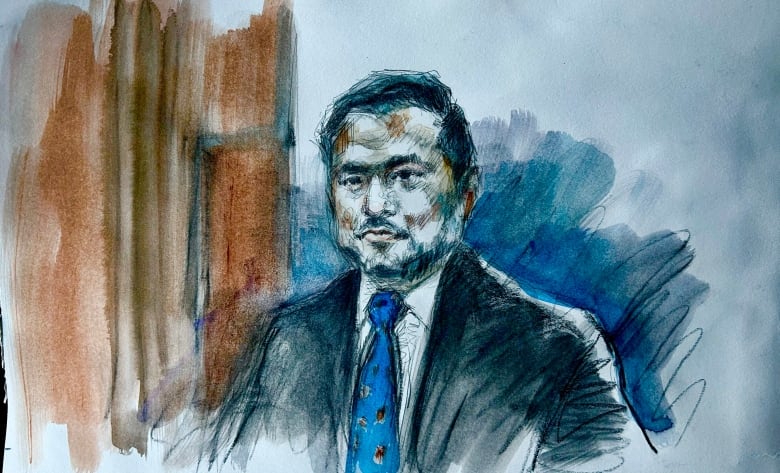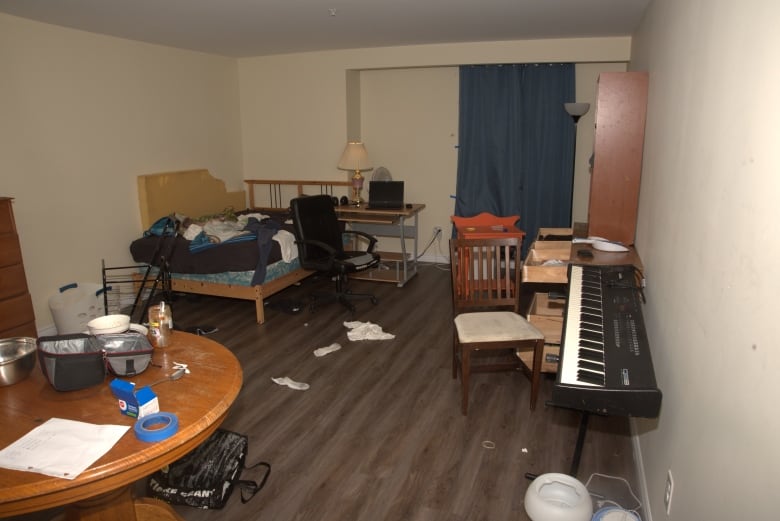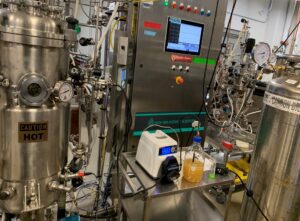
Warning: This story contains distressing details.
Inside the Acer laptop found in the bachelor apartment of Nathaniel Veltman, the accused killer of a Muslim family in London, a digital forensic investigator found an early version of a manifesto and a video of someone shooting two people, jurors heard on Tuesday.
Sgt. Liyu Guan, who specializes in examining electronics, is with the police service in Windsor, where the 22-year-old’s murder-terror entered its fourth week of proceedings in Ontario Superior Court on Tuesday.
Guan testified the shooting video was first downloaded on May 5, 2021, a month before the June 6 killing of the Afzaal family, and it was opened eight times in the intervening 32 days.
“It was a first-person shooting of two people,” Guan said of the file he found in the computer’s recycle bin.
The person logged into the laptop that opened that file was a user named NATE.
Also found on the laptop was a Notepad file called “idk,” which Guan said was an earlier version of a filed called “A White Awakening” — found on a different device — a manifesto that the accused wrote and edited.
“The idk file was the most recent document opened on the Notepad app by the user Nate,” Guan said.
“This was the D: drive that the idk document existed on, and turned into the ‘A White Awakening’ document.”

Veltman, who has pleaded not guilty, faces four counts of first-degree murder and one count of attempted murder, as well as associated terrorism charges because prosecutors allege he was motivated by far-right ideology. They also say he was inspired by others, mainly Brenton Terrant, a gunman who killed 51 people in Christchurch, New Zealand, in 2019, and that he hoped to influence others.
The Afzaals were out for an evening walk in suburban London when they were struck by a pickup truck driven by the accused, one of the agreed statement of facts in the trial. Yumnah Afzaal, 15, her parents Madiha Salman, 44, and Salman Afzaal, 46, and family matriarch Talat Afzaal, 74, were killed. A nine-year-old boy survived.
Emails, credit card stored in laptop
Guan testified he was able to confirm the laptop belonged to the accused because of the emails and credit card information stored on the machine. The laptop also contained a VPN and TOR Browser, which are commonly used to hide a user’s identity and trail while browsing the dark web.

“Tor Browser is specifically designed to hide the user’s tracks. When you browse the unternet with it, it’s almost impossible to trace it,” Guan said.
The laptop also contained a BitTorrent program, to share files between users, and other more mundane items, such as Minecraft, a popular digital game.
Guan’s testimony began early Tuesday with a detailed rundown of his qualifications as a forensic investigator. He also examined and will be testifying about an external hard drive, thumb drives and cellphone found in the accused’s apartment.
The officer’s testimony is expected to continue on Wednesday.
The trial, which began Sept. 11 after jury selection the week before, is expected to last eight weeks.

